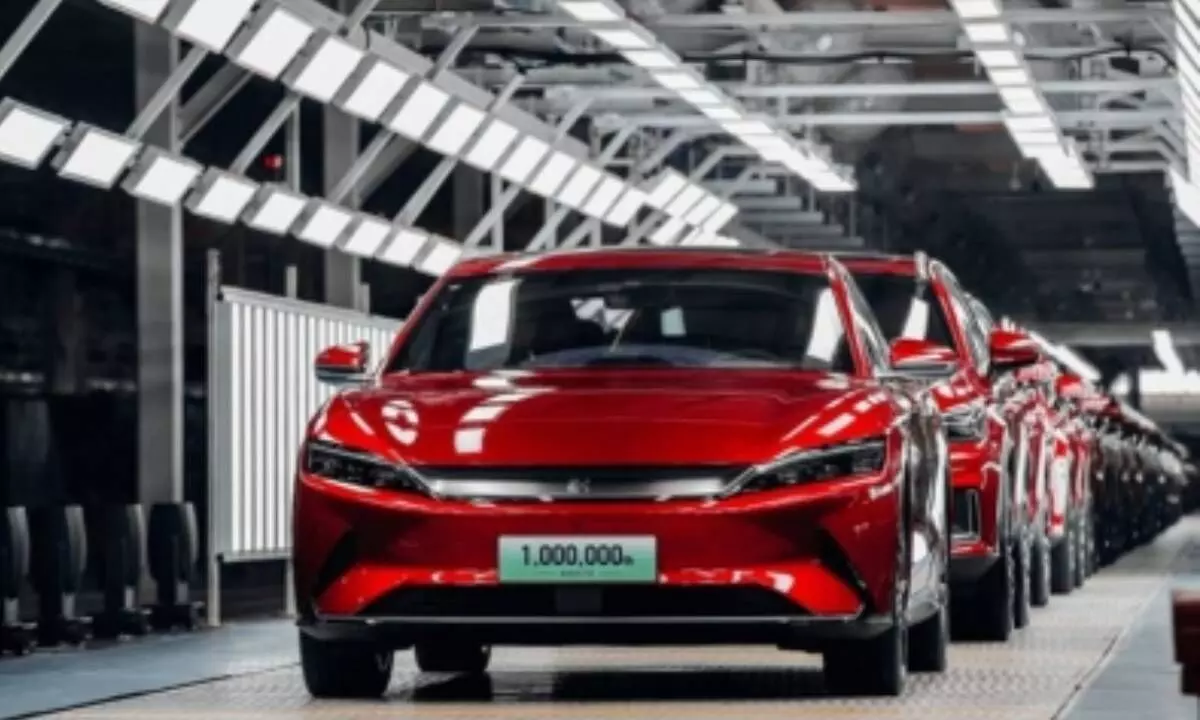Top 10 Tesla Alternatives in 2025: BYD, SAIC Maxus Lead Global EVs
BYD tops the 2025 EV list with high sales, strong safety scores, and range. SAIC Maxus, Changan, and more emerge as top Tesla rivals globally.
image for illustrative purpose

A recent analysis by Slot.Day has placed China’s BYD Corp. at the top of the list of electric-vehicle alternatives to Tesla, based on global sales, online search interest, pricing tiers, safety scores and driving range. The study drew on data from Statista, ANCAP and other open reports to generate a composite score for each brand.
According to Slot.Day’s rankings, BYD logged 2,607,970 EV sales worldwide and averaged 619,760 Google searches per month. Its model lineup spans price points from $13,900 to $65,830 and delivers an average driving range of 445 kilometers. Safety test results contributed to a flawless five‑star average rating and an 87.6 percent adult occupant protection score. The company’s overall index value reached 99.1.
SAIC Maxus claimed second place with a composite score of 84.6. The brand posted 175,985 EV sales and 194,440 monthly searches. Its entry‑level models start at $4,460, the lowest of the group, while the top trim approaches $20,500. Maxus secured five‑star safety ratings and recorded 92 percent adult protection and 87 percent child protection. Its electric range averages 365 kilometers.
Changan secured the third position with a score of 84.4. The automaker sold 166,685 EVs globally and saw 48,750 monthly searches. Price brackets for Changan models run from $16,400 to $41,300, and the average range stands at 450 kilometers. Adult occupant protection reached 95 percent, and the brand holds a five‑star safety average, despite limited ANCAP testing.
In fourth place, Wuling logged 371,386 EV sales and 10,350 monthly searches, earning a score of 81.3. Wuling models begin at $6,400 and cap at $21,000. The Hongguang Mini EV, its best‑selling model, delivers about 300 kilometers per charge and maintains a five‑star safety average on available test results.
Aion captured the fifth slot with 264,320 EV units sold and 23,360 searches per month, resulting in an 80.5 score. Pricing runs from $17,800 to $29,000, and Aion recorded the longest average driving range at 520 kilometers. Its safety average registers at 4.6 stars.
Geely took sixth place on a score of 80.3, driven by 303,936 EV sales and 7,460 monthly searches. Price points vary widely, from $10,000 to $80,000, and the brand’s range averages 410 kilometers. Geely’s safety average stands at 3.5 stars, with no detailed occupant protection breakdown available.
Leapmotor ranked seventh with a score of 80. It recorded 170,467 EV sales, 2,880 searches per month, and price tags between $10,000 and $22,800. Leapmotor models average 300 kilometers of range and hold five‑star safety ratings, with 89 percent adult protection and 85 percent for children.
Volkswagen Group placed eighth, scoring 79.9. The company reported 318,255 EV sales and 1,681,520 monthly searches. Its price range spans $21,000 to $71,100, and models average 445 kilometers of range, backed by 91.7 percent adult protection and five‑star safety results.
Nio and Hyundai closed out the top ten. Nio achieved a score of 78.8 with 149,172 EV sales, 22,500 searches and prices from $20,400 to $140,000; its range averages 450 kilometers and adult protection rates hit 93.2 percent. Hyundai scored 76.9, posting 183,791 EV sales, 867,510 searches and pricing from $22,600 to $54,400; its models achieve 400 kilometers per charge and 92.5 percent adult protection.
A Slot.Day spokesperson said, “Consumer interest is shifting from traditional brand allegiance to tangible factors such as price, range, safety and availability. This study highlights how value propositions are now at the forefront of electric‑vehicle purchase decisions.”

